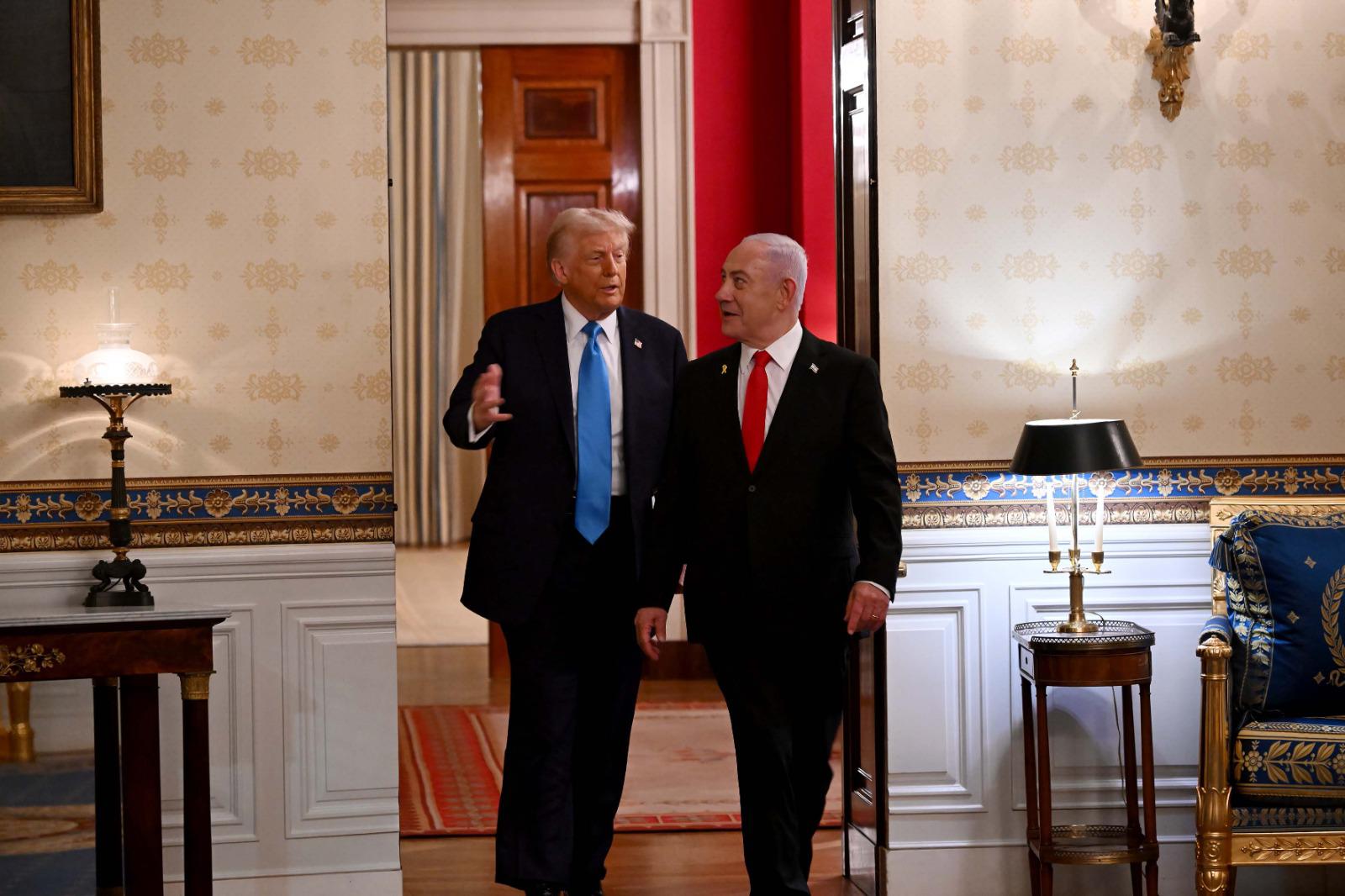****I received this message on my Email by Bill Koenig's
Koenig's Eye View from The White House****
By Tania Koenig
Just weeks after his last visit to Washington, Israeli Prime Minister Benjamin Netanyahu is once again en route to the White House—this time at the direct invitation of former President Donald Trump. The hastily arranged meeting, set for Monday, April 7, raises urgent questions—not only about trade, but about deepening regional instability and the evolving diplomatic triangle between Israel, the United States, Iran, and Russia.
The official reason is economic: the Trump administration’s newly imposed 17% tariff on Israeli goods has triggered alarm in Jerusalem. With Israeli exports now at risk in a vital market, Netanyahu is pushing for immediate relief. But trade isn’t the whole story.
The invitation came during a Thursday call while Netanyahu was in Budapest. Trump reportedly made the offer casually, yet pointedly: “Maybe even next week.” The message was clear—this meeting needed to happen now.
So what’s behind the sudden urgency?
Behind the scenes, the U.S. is quietly exploring direct negotiations with Iran—outside of the JCPOA framework and possibly with Russian involvement. Iran has signaled a willingness to engage “on equal footing,” while continuing to advance its nuclear program. Russia has offered itself as a stabilizing intermediary—one that Israel does not trust.
If Israel isn’t in the room, it risks being the topic, not the partner. That may be Netanyahu’s real reason for returning to Washington. He’s not just objecting to tariffs—he’s trying to get ahead of a potential grand bargain that could marginalize Israel and reshape the region without its voice.
This moment carries weight—politically, strategically, and spiritually.
If peace is negotiated at the expense of truth, it becomes an illusion. And illusions, when believed by world powers, can become dangerous.
As Netanyahu prepares to meet Trump, the Church must stay awake. The alignments are shifting. What is said—or unsaid—behind closed doors may determine whether the region leans toward stability or steps into fire.
Watch. Pray. Discern. The hour is significant.
For news, commentary and more subscribe to Koenig's Eye View from the White House
Koenig's Eye View from The White House****
By Tania Koenig
Just weeks after his last visit to Washington, Israeli Prime Minister Benjamin Netanyahu is once again en route to the White House—this time at the direct invitation of former President Donald Trump. The hastily arranged meeting, set for Monday, April 7, raises urgent questions—not only about trade, but about deepening regional instability and the evolving diplomatic triangle between Israel, the United States, Iran, and Russia.
The official reason is economic: the Trump administration’s newly imposed 17% tariff on Israeli goods has triggered alarm in Jerusalem. With Israeli exports now at risk in a vital market, Netanyahu is pushing for immediate relief. But trade isn’t the whole story.
The invitation came during a Thursday call while Netanyahu was in Budapest. Trump reportedly made the offer casually, yet pointedly: “Maybe even next week.” The message was clear—this meeting needed to happen now.
So what’s behind the sudden urgency?
Behind the scenes, the U.S. is quietly exploring direct negotiations with Iran—outside of the JCPOA framework and possibly with Russian involvement. Iran has signaled a willingness to engage “on equal footing,” while continuing to advance its nuclear program. Russia has offered itself as a stabilizing intermediary—one that Israel does not trust.
If Israel isn’t in the room, it risks being the topic, not the partner. That may be Netanyahu’s real reason for returning to Washington. He’s not just objecting to tariffs—he’s trying to get ahead of a potential grand bargain that could marginalize Israel and reshape the region without its voice.
This moment carries weight—politically, strategically, and spiritually.
If peace is negotiated at the expense of truth, it becomes an illusion. And illusions, when believed by world powers, can become dangerous.
As Netanyahu prepares to meet Trump, the Church must stay awake. The alignments are shifting. What is said—or unsaid—behind closed doors may determine whether the region leans toward stability or steps into fire.
Watch. Pray. Discern. The hour is significant.
For news, commentary and more subscribe to Koenig's Eye View from the White House

